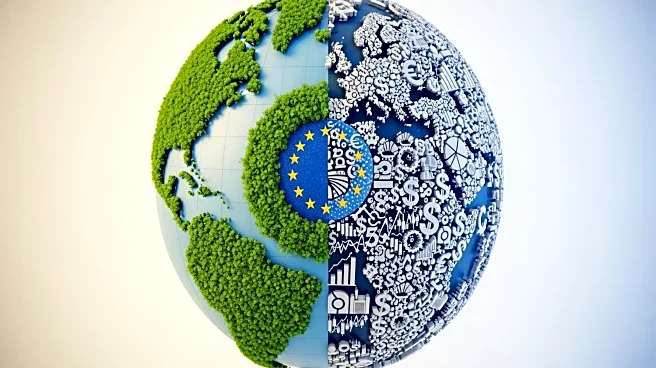What's Happening?
The European Union is facing internal divisions over setting a 2040 climate target to reduce net greenhouse gas emissions by 90% compared to 1990 levels. The proposal, part of the EU's broader goal to become
a net-zero area by 2050, has met resistance from several member states. While Nordic countries support the ambitious target, central and eastern European nations seek flexibility and potential revisions. The EU summit is addressing these divisions, with some countries fearing that strict targets could harm industrial competitiveness.
Why It's Important?
The EU's internal disagreements over climate targets highlight the tension between environmental goals and economic interests. The outcome of these discussions could influence global climate policy, especially with the upcoming COP30 summit. The EU's ability to balance climate action with economic stability is crucial, as it sets a precedent for other regions. The resistance from major economies like Germany, France, and Italy underscores the challenges of aligning diverse national interests with collective climate commitments.
What's Next?
The EU will continue negotiations to find a compromise on the 2040 climate targets. The European Commission is considering measures to mitigate the economic impact of new emissions trading systems. The outcome of these discussions will be pivotal in shaping the EU's climate strategy and its role in global climate negotiations. Stakeholders, including businesses and environmental groups, will closely monitor the EU's decisions, which could influence international climate policies and economic strategies.








